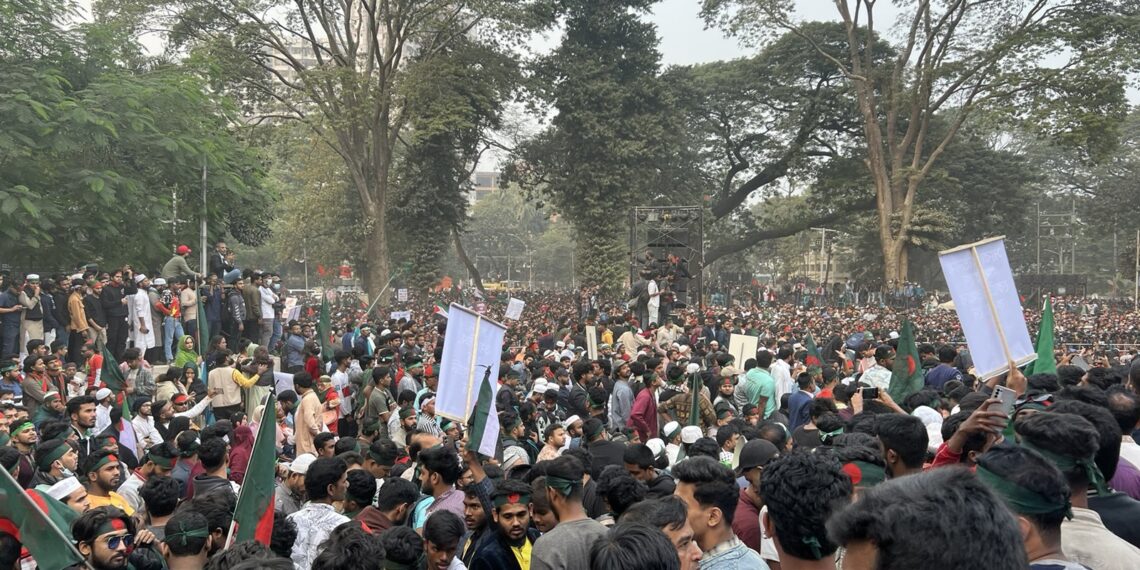New Delhi: Mob lynching incidents in Bangladesh have risen by nearly 400% since the installation of the interim government led by Chief Advisor Dr Mohammad Yunus, according to a new report released by the Rights & Risks Analysis Group (RRAG) on Friday.
The report, titled “Bangladesh: One Year After July Revolution, Ochlocracy Rules,” draws a sharp contrast between the law and order situation under former Prime Minister Sheikh Hasina and her successor.
It states that from August 2024 to June 2025, at least 185 people were lynched and another 281 injured in mob violence under Dr Yunus’s tenure—up from 51 reported lynching deaths in 2023 under Hasina’s government.
“Mob violence has surged alarmingly under the current interim administration,” said RRAG Director Suhas Chakma.
“A total of 466 people were impacted by such attacks within just eleven months of Dr Yunus assuming office.”
The political shift began on July 19, 2024, when mass protests over government job quotas prompted the Hasina-led government to impose curfews and deploy the military.
The administration ultimately collapsed on August 4. Dr Yunus took charge as head of the interim government on August 8.
Among the most high-profile victims cited in the report were Roksana Begum Ruby (53), her son Russel Mia (35), and daughter Jonaki Akhter (25), who were lynched in Comilla’s Muradnagar upazila on July 3, 2025.
Another incident involved former Chief Election Commissioner KM Nurul Huda, who was assaulted by a mob and publicly humiliated in Dhaka’s Uttara area on June 22, 2025.
Despite the government granting executive magistracy powers to military officers ranked captain and above—including those in the Coast Guard and Border Guard Bangladesh—mob violence continues unabated.
The special legal powers, granted on September 17, 2024, have failed to restore order, RRAG said.
The report also accuses the interim government of enabling a culture of impunity.
It alleges that by shielding participants in the July–August 2024 uprising—during which at least 44 police personnel were killed—the administration has emboldened vigilante groups, particularly the Anti-Discrimination Students Movement.
ALSO READ: Meghalaya establishes Real Estate Regulatory Authority to oversee sector growth
“These student-led groups have not only forced the resignation of top judges but also led violent protests against media outlets and political opponents,” said Chakma.
“The burning of the Jatiya Party headquarters in October and growing involvement of BNP cadres in attacks point to a dangerous breakdown in state control.”
The RRAG warned that without immediate corrective measures, Bangladesh risks spiraling further into lawlessness.
“If the interim administration continues to rely on mobs as a tool for control, the situation will only deteriorate,” Chakma added.















